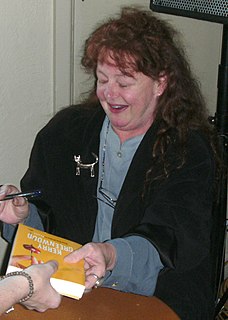A Quote by Kerry Greenwood
I have a theory that kitchens, once they reach a certain level of complexity, attract new gadgets into their orbit, like planets. Only this can account for the fact that I own two melon ballers.
Related Quotes
Most Jupiter-sized planets orbit the mother star in a highly elliptical orbit. This means they will often cross the orbit of any Earth-like planet and fling it into outer space, making life impossible. But our Jupiter travels in a near-perfect circular orbit, preventing a collision with any Earth-like planet, making life possible.
In these researches I followed the principles of the experimental method that we have established, i.e., that, in presence of a well-noted, new fact which contradicts a theory, instead of keeping the theory and abandoning the fact, I should keep and study the fact, and I hastened to give up the theory.
There's no doubt that the search for planets is motivated by the search for life. Humans are interested in whether or not life evolves on other planets. We'd especially like to find communicating, technological life, and we look around our own solar system, and we see that of all the planets, there's only one that's inhabited.
A major puzzle for which nobody has an answer is this: is there some size at which the planets change their nature from water-rich planets like Neptune, to rocky planets like the Earth? We have found two planets that are the size of the Earth in radius, but they are very close to their host star, so water on the surface would evaporate away.



































